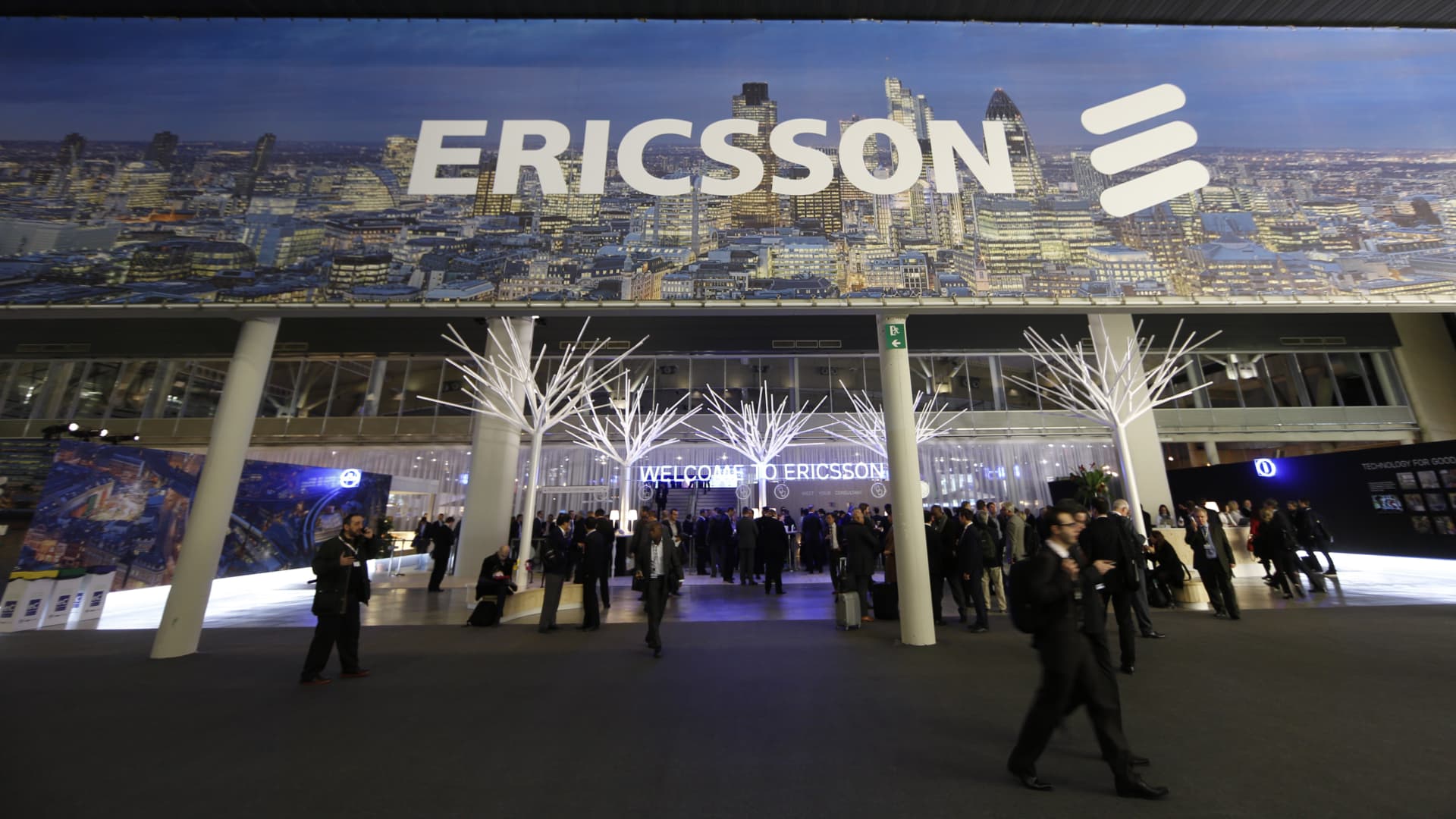Ericsson recently announced it is planning to cut 8,500 jobs as part of its cost-cutting measures.
Nurphoto | Nurphoto | Getty Images
Shares of Finland’s Nokia plunged to a three-year-low, as the telecoms company lost out on a major deal to roll out a new telecoms network in the U.S. with industry juggernaut AT&T.
Helsinki-listed Nokia shares were down 7% at 9:40 a.m. London time on the news that AT&T will be partnering with Swedish rival Ericsson, which will manufacture 5G equipment for the project at its factory in Lewisville, Texas. Stockholm-listed shares of Ericsson were up 7.4%.
AT&T spend is set to be near $14 billion over its five-year contract with Ericsson, the companies said late Monday. The partnership covers the deployment of an open radio access network (Open RAN) in the U.S., which AT&T expects to use for 70% of its wireless network traffic by late 2026.
The decision deals Nokia a significant blow through the loss of market share as a supplier to AT&T, which will see the replacement of existing Nokia equipment in several places.
Nokia CEO Pekka Lundmark called the news “disappointing,” but said that the company remained “fully committed” to Open RAN and had a strategy to diversify its business and improve profitability.
The firm is already facing a troubled financial picture, following a plunge in its third-quarter earnings as customers cut costs.
On Monday it said it expected revenue from AT&T in its mobile networks division, which has accounted for 5-8% of net sales in the year to date, would decrease over the next two to three years. It expects the divison to remain profitable but flagged a delay in its timeline for achieving a double digit operating margin of up to two years.
It said a previously-announced cost-cutting plan, which it announced in October would slash up to 14,000 jobs, would partially mitigate the impact of the AT&T decision. Nokia will continue to supply AT&T with products and services in various other areas.
The U.S. titan is also partnering with firms including Japan’s Fujitsu, Intel and Dell.
Open RAN or ORAN networks represent a cost and power-cutting shift for telecom firms to use cloud-based software and equipment from several suppliers, rather than proprietary equipment supplied by a smaller number of big companies that do not work together. The move has faced some resistance from vendors over concerns about losses of business opportunities.
“With this collaboration, we will open up radio access networks, drive innovation, spur competition and connect more Americans with 5G and fiber,” AT&T Network Executive Vice President Chris Sambar said in a Monday statement.

